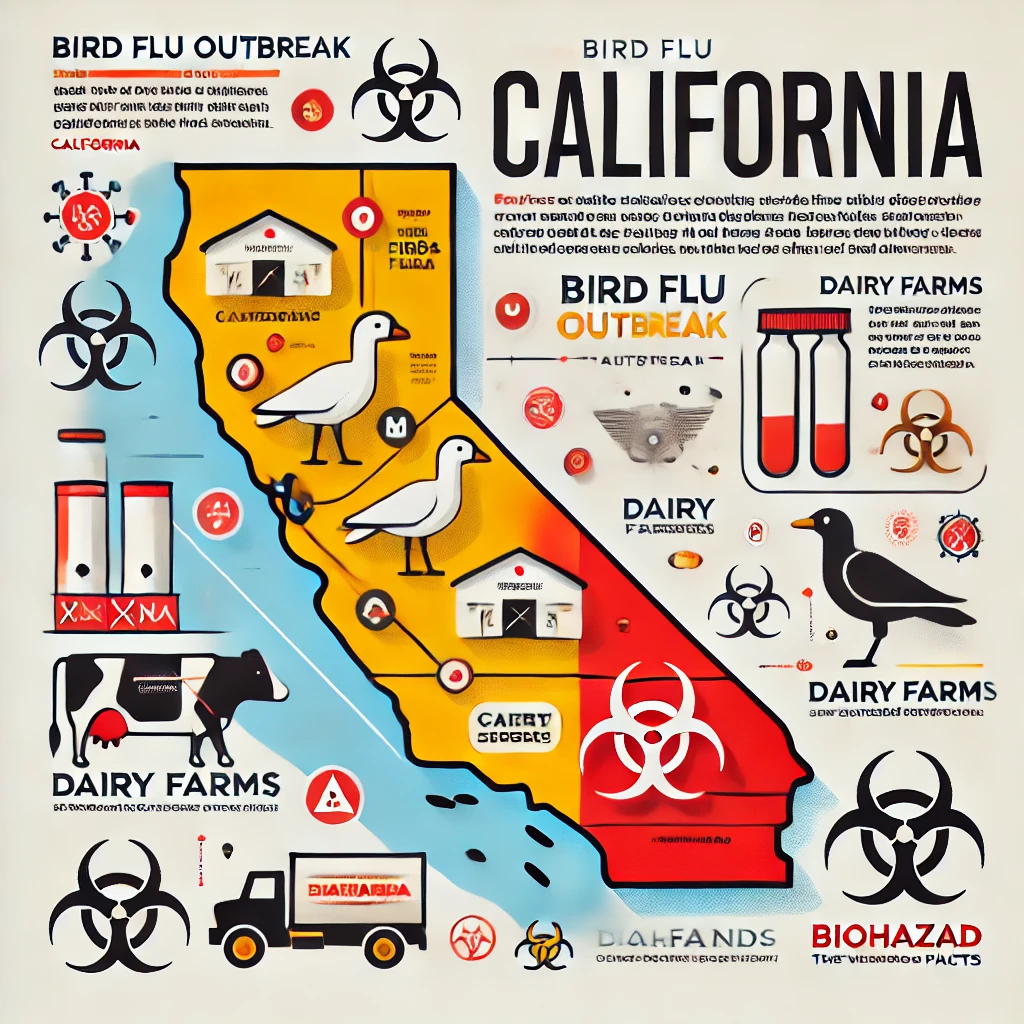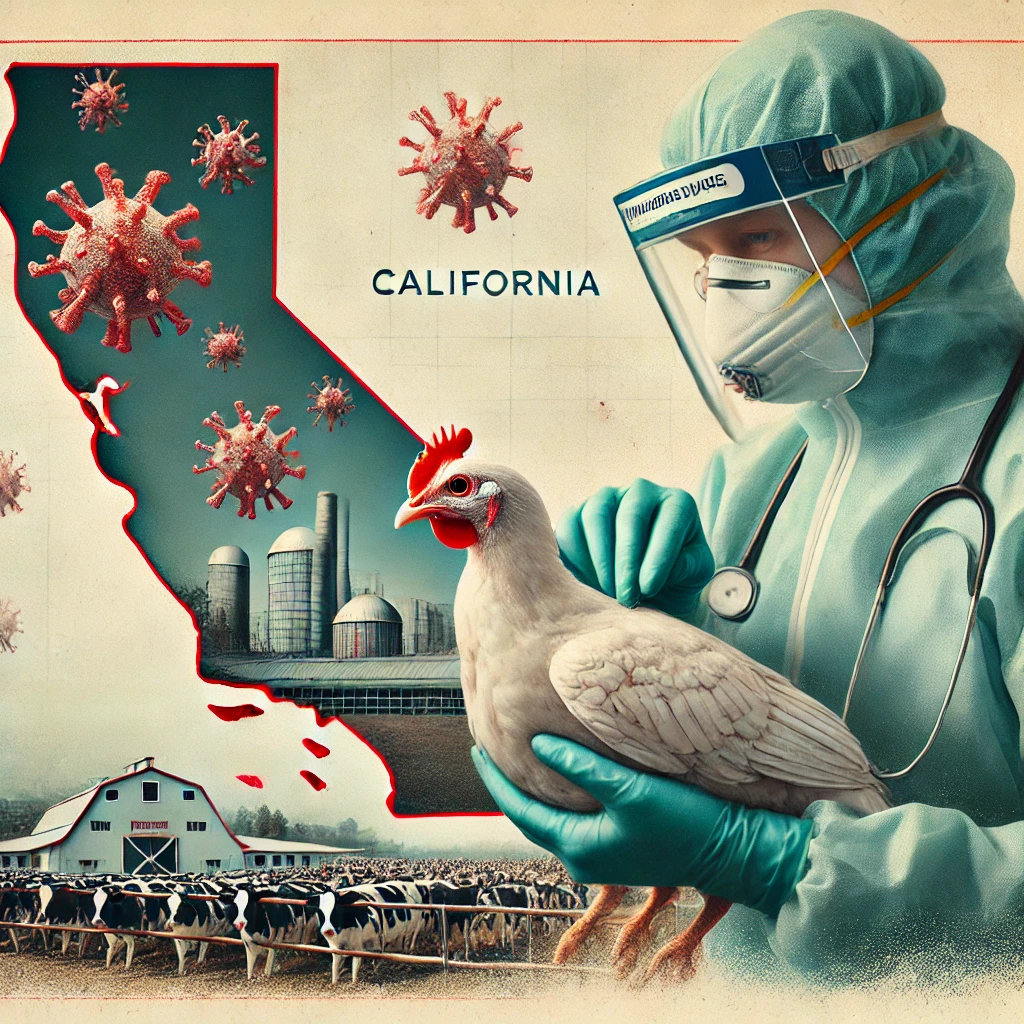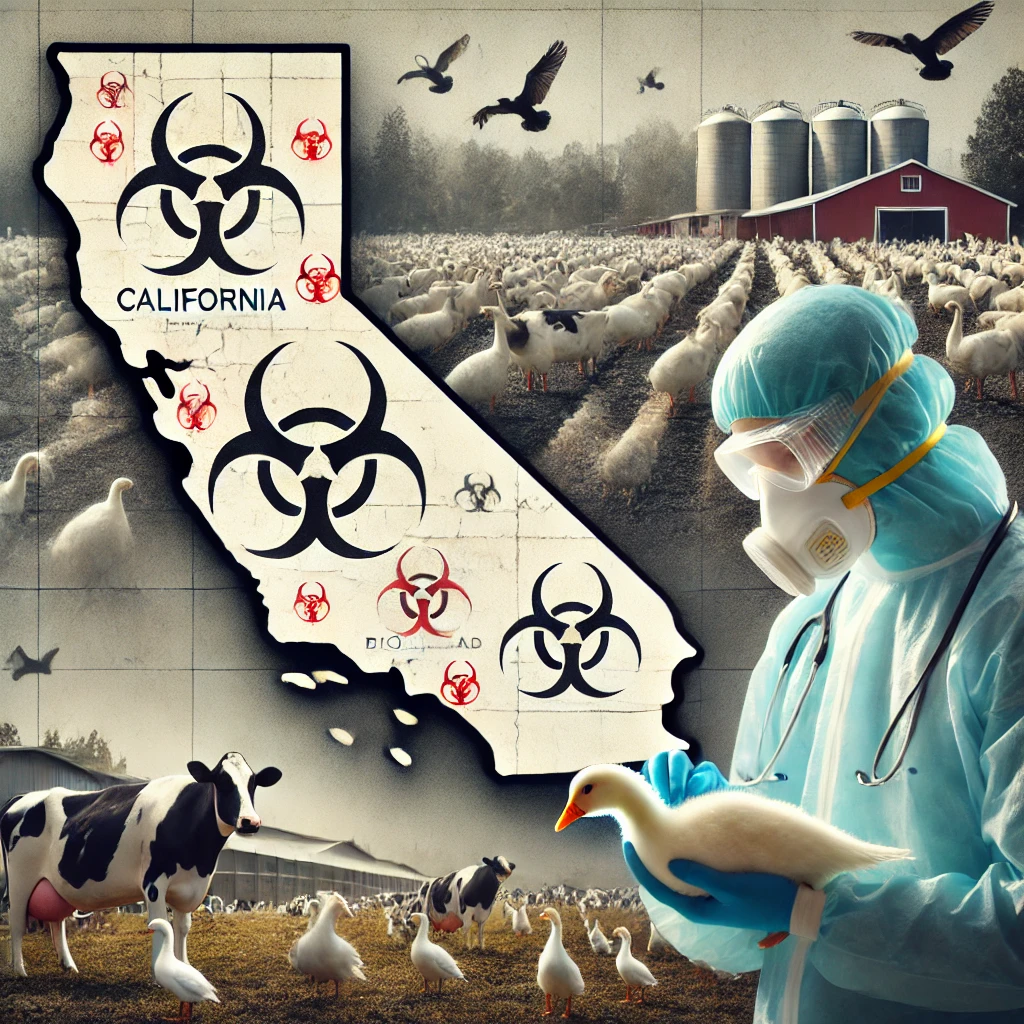Why California Declared a State of Emergency Over Bird Flu: Everything You Need to Know
The urgency of the situation has been made more evident by rising cases of bird flu.
The first severe human case of bird flu in the U.S. was reported in Louisiana. California Governor Gavin Newsom declared a state of emergency because of[to] escalated bird flu cases. This declaration allows critical resources to be allocated to fight the outbreak and to halt its spread.
In this regard, we’ll examine what’s happened, why it matters, and how it affects public health.
What Prompted California’s State of Emergency?
California declared an emergency after bird flu was discovered in multiple dairy cows in Southern California. Initially confined to poultry, the virus has now spread to cattle and farm workers, but human cases have been mild.
A 65-year-old in Louisiana is the first U.S. patient to get sick with H5N1, experiencing severe symptoms. The patient, who has other health problems, is in critical condition.
The Centers for Disease Control and Prevention (CDC) said this individual may have gotten the virus by being exposed to sick birds in backyard flocks.
So, is Bird Flu severe in humans?
Bird flu in humans is rare but becoming more common. Having hit 61 people in seven states since 2022, including 34 in California, the H5N1 strain has been increasingly worrying health officials. Most cases are mild, but the increasing number of infections is raising concerns about the virus’s effect on the country’s public health.
Bird flu is a global concern. **The H5N1 strain is particularly deadly, with a 52% fatality rate, responsible for 463 deaths out of 860 reported infections around the world since its discovery.
What Is Bird Flu?
Avian influenza (bird flu) is a virus that can affect birds but can also infect humans and other animals, including dairy cows, seals, cats and dogs.
The strain of H5N1 was first seen in Chinese domestic waterfowl in 1996 and has since caused severe illness and death in both birds and humans. However, other strains, H7N9 and H5N8, have also appeared, albeit less deadly.

There are two key symptoms of Bird Flu in humans, while the third is rare.
Symptoms of H5N1 include:
- Red, watery eyes
- Fever and fatigue
- Cough and sore throat
- Muscle aches
- Shortness of breath
How Bird Flu Spreads
Humans can contract bird flu through exposure to infected birds, mainly via:
Contact with bird saliva, mucus or faeces.
Contact with contaminated droplets or dust by inhaling
So far, the CDC said, there is no evidence of human-to-human transmission of bird flu.

Can Chicken Carry Bird Flu?
Eating properly cooked poultry will not harm you. However, the CDC warns pregnant women against eating raw products or undercooked poultry, which could contain the virus.
Preventing Bird Flu: Tips for Staying Safe
- Stay away from sick or dead birds and infected animals.
Before handling potentially infected birds, always you should wear protective gear. - Do not go to live animal markets in affected areas.
Do not eat raw milk, eggs or undercooked poultry products.
The question is, is there a bird flu vaccine?
To date, no approved vaccine for humans exists. The good news is that vaccines for birds are already available to contain outbreaks.
Modern helped the U.S. government $176 million to develop a human bird flu vaccine.

Why This Matters
But the declaration of a state of emergency confirms what the government already know: They are up against an increasing threat of bird flu, which could also affect public health and the agriculture sector. Cases are on the rise, and the first severe U.S. case has been reported, but public awareness and preventative measures are now more important than ever.
Stay up to date, stay safe, and follow the advice from health authorities as this situation develops and is managed.






